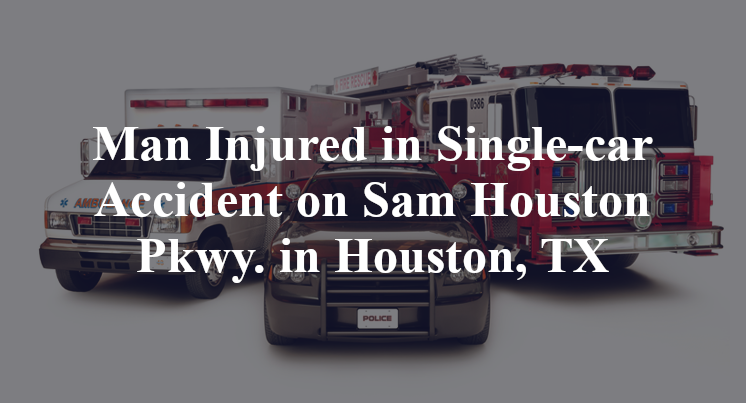Man Injured in Single-car Accident on Sam Houston Pkwy. in Houston, TX
Harris County, TX — June 29, 2024, a man was injured due to a single-car accident at approximately 10:30 p.m. along Sam Houston Parkway.
According to authorities, a 47-year-old man was traveling in a westbound Chevrolet Tahoe of the Sam Houston Parkway east service road in the vicinity west of Scott Street when the accident took place.

Officials indicate that, for reasons yet to be confirmed, the Tahoe failed to safely maintain its lane of travel. It was consequently involved in a single-vehicle collision in which it apparently collided with a concrete bridge support. Additional details pertaining to this incident—including the identity of the victim—are not available at this point in time.
Commentary by Attorney Michael Grossman
Moments of sudden upheaval often leave more questions than answers—especially when a vehicle veers off course for reasons that aren't immediately clear. In the aftermath of such crashes, what may seem like a simple loss of control can actually mask deeper mechanical issues or overlooked electronic evidence. When someone is seriously hurt, it's crucial to ask the right questions—not just to understand what happened, but to ensure the same thing doesn’t happen again.
1. Did the authorities thoroughly investigate the crash?
In a single-vehicle collision like this one, the quality of the investigation becomes even more important, because there's no second party to offer another version of events. Was a proper crash reconstruction conducted, or did investigators stop at a visual survey of the scene? These kinds of crashes demand more than a surface-level review. Things like mapping the impact trajectory, checking for skid marks, and reconstructing vehicle dynamics can help determine if the driver’s actions align with the evidence. But not every agency has the same resources or training, and sometimes these deeper steps are missed.
2. Has anyone looked into the possibility that a vehicle defect caused the crash?
When a vehicle drifts out of its lane and strikes a fixed object, it's fair to ask whether something inside the vehicle failed. Power steering malfunctions, electronic stability issues, or even a tire blowout can cause a sudden loss of control. A proper inspection of the vehicle’s mechanical systems—especially the steering and suspension components—might uncover problems that aren’t visible from just looking at the wreckage. Without ruling out those possibilities, any conclusion about fault remains incomplete.
3. Has all the electronic data relating to the crash been collected?
Today’s vehicles often carry more information than people realize. The Chevrolet Tahoe likely contains onboard data that could show what was happening just before the impact—how fast it was going, whether brakes were applied, and how the steering wheel was turned. If the driver had a smartphone connected or was using GPS, that data might also fill in missing details. Gathering this kind of evidence could be the key to understanding whether this was truly driver error, or if some other factor came into play.
When a crash leaves someone injured with no clear explanation, it’s not enough to rely on assumptions. The real story is often hidden in the parts no one thinks to check—under the hood, inside the data, and within the details of a proper investigation.
Key Takeaways:
- Not all crash investigations go beyond surface-level assessments.
- Mechanical failures should always be considered in single-vehicle crashes.
- Vehicle and phone data can offer critical insights into what actually happened.

*We appreciate your feedback and welcome anyone to comment on our blog entries, however all visitor blog comments must be approved by the site moderator prior to showing live on the site. By submitting a blog comment you acknowledge that your post may appear live on the site for any visitors to see, pending moderator approval. The operators of this site are not responsible for the accuracy or content of the comments made by site visitors. By submitting a comment, blog post, or email to this site you acknowledge that you may receive a response with regard to your questions or concerns. If you contact Grossman Law Offices using this online form, your message will not create an attorney-client relationship and will not necessarily be treated as privileged or confidential! You should not send sensitive or confidential information via the Internet. Since the Internet is not necessarily a secure environment, it is not possible to ensure that your message sent via the Internet might be kept secure and confidential. When you fill out a contact or comment form, send us an email directly, initiate a chat session or call us, you acknowledge we may use your contact information to communicate with you in the future for marketing purposes, but such marketing will always be done in an ethical way.